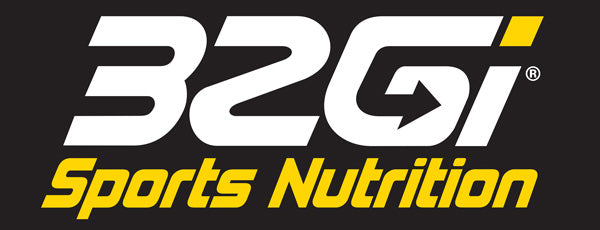While the Banting and LCHF diets seem to be well entrenched now, do you fully understand how they work? And, what exactly are the benefits? As part of fat month on 32Gi Sports Nutrition; we are breaking down the benefits and restrictions of the diet. Most notably, when it comes endurance and exercise.
Transcription:
Thanks for joining us once again on 32Gi Sports Nutrition, I’m Mr Active David Katz. We are in August and we have made August fat month. We’ve talked about low fat verses sort of high fat to dairy. Mark Wolff has of given us sort of lowdown on what that means.
But today I want to look at I wouldn’t call it a new fad because it’s been around for a while, but the Banting the LCHF diet. It’s all the rage looking more at fats, high fats and sort of low carbohydrate. So Mark for people out there who don’t know what the Banting diet is about, just give them sort of a rough idea.
The Banting diet in a nutshell
MW: I think simply put David lowering your carbohydrate intake significantly. In most people under 50 even down to under 30 grams of carbohydrates per day; and basically increasing the fat in your diet. Utilising fat as your main source of energy and becoming more fat efficient.
You know a lot of people say what’s suitable for me? You know low carb high fat, high fat or you know low fat high carb etcetera. I mean to me I think that each person needs to eat what’s unique for them.
So what works for one person is not necessarily going to work for the next. Everybody has got tolerances and intolerances to certain food, and it’s a matter of figuring out what works best for us. So the way I look at it first of all, we’ll get to defining sort of low carb and high fat and high carb low fat, but the way I look at it is that we all genetically different.
We born with different genes and obviously by what we consume as we go through life, we know that food will impact us differently. You know from one person to the next. But without a doubt there are a lot of people out there who are what I call carbohydrate intolerant or sugar intolerant, for example is another one.
Those are the kind of people that would probably have to limit carbohydrate in their diet and balance it out a little bit more. Some people they can eat as many carbs as they want and they don’t tend to they don’t actually tend to have it impacting them much.
But I think the problem is, is that we also need to have a look at the health aspects of both. Let’s first have a look at, at a typical low carb or high carb diet. So basically if we’re looking at low carb high fat for example.
Comparing High fat & High carb diets
If you looking at the Banting community generally they try and cut their carbohydrate in take down to definitely under 50 grams of carbohydrates per day. Some even go as low as under 30 grams of carbohydrates per day.
It’s really a matter of increasing Ketone levels in the blood which is basically a form of fat for fuel. So increasing the free fatty acid availability which can be utilised to fuel the body. So the body becomes what is deemed to be, is more close to an inter-ketogenic state. Then the body would basically be able to fuel itself primarily from a fat source and not have to rely on any carbohydrate sources for fuel.
If we’re looking at higher carb diet ,I mean eating a higher carb diet definitely puts in carbs into the body which is obviously converted into glucose. The body is gonna get rid of that glucose before it does anything else. So obviously in that state I mean the body is constantly burning off glucose as a form of fuel, as opposed to burning off fat as a form of fuel.
If we look at those two diets that’s generally from one extreme to the other extreme. That’s generally how those two types of eating affect us on a physiological sort of basis.
I think the biggest problem that we’re sort of seeing at the moment is people are looking for a quick fix for everything. That’s happening in the eating world a lot, is that everybody looking for a quick fix etcetera.
Why you want to periodise carbohydrate intake
So look I mean from a personal perspective I mean I’ve been the low carb high fat routes. I’ve been the high carb route and I also periodise carbohydrates as well. So it was called carbohydrate periodisation, which is increasing carbohydrate when it’s required and decreasing when it’s required. I think what works for me best is actually periodising carbohydrates I’ve seen that. That works very, very well for most people.
So you know being an athlete and training heavily all the time I mean obviously you burning off a higher amount of calories, and yes you can still be fat efficient by periodising carbohydrates.
When I use the word fat efficient; I’m talking about the fact that you could still be very good at burning off fat at slightly higher intensities during exercise, not have to rely too much on carbohydrate intake.
However I still think that carbohydrate intake are necessity and one of the things that I’ve got is a slight auto-immune disorder. So the thing is that when I do reduce my carbohydrate intake significantly and I put myself through bouts of high volume training periods. I actually land up getting ill a lot more frequently. So by increasing my carbohydrate intake slightly I found my immune system to be a lot stronger and I generally cope with exercise a lot more.
So you can see what I’m telling you is that everybody has got different needs and requirements. Some people exercise some people don’t exercise. I think it’s a matter of deciding, you know looking at the kind of foods that you eat. Then deciding, is that suitable for me? Should I go low carb, should I go high carb or what’s best for the kind of training or the kind of active lifestyle that I actually lead? It’s a matter of working around that.
Eating clean whether it’s fats or carbs
DK: Now whether your Banting or not, it is a good idea isn’t it to look at the sort of cleaner carbs in a sense or the more natural than the refined. That’s the one thing that I like about the Banting diet. Is it’s you know it’s trying to get people to eat more or less refined foods.
MW: Well that’s one thing I agree with. So I mean also if you look at Paleo, you talking about unrefined foods as well. So, which is not necessarily it is not necessarily a high fat diet. It’s not a high fat diet you know, low carb high fat is different.
But the thing is to me yes natural eating is 100% key. If you look at a Banting diet yes your carbohydrate intake in the form of vegetables. Is gonna be a lot higher, or healthy carbs is gonna be a lot higher than anything else. Obviously starch is also pushed aside a lot, obviously fruits are limited excessively. I mean even down to a really small amount each day.
The fat intake obviously needs to be a lot higher. The problem with low carb high fat is they tend to over-eat fat. When they tend to over-eat fat thinking they can eat as much fat as they want. That’s when they tend to actually gain weight.
Because the amount of fat obviously per gram is nine calories as opposed to four and people land up putting on an excessive amount of weight. When you supposed to eat in a Banting diet you supposed to eat the amount of fat that’s gonna keep you fuller for longer. Obviously it will limit your food intake. The problem is some people don’t know what those measurements are and they tend to overdo it. So I think there’s always a risk.
Eating unsaturated as opposed to saturated fats
Another thing that I’m a big fan of when it comes to eating fats is I prefer going for obviously unsaturated as opposed to saturated fats. To me that’s more key. I’m not a fan of eating animal based fat products. I mean in general low carb high fat eating it is they say it’s fine you can do it etcetera.
But I just find that from a vegetable fat point of view, and I’m talking healthy fat. So whether it’s Flaxseed or whether it’s Chia seeds or whether it’s sesame seed paste or whatever it is. Olive oil, coconut oil these kind of things.
I find it has to be more beneficial and far more useful to me as an athlete. Again, eating a lot of animal fat sources and just you know that’s a personal preference. I’m not a big meat eater by any means so I prefer the vegetarian based diet. I also think it’s a lot cleaner and I like it.
As far a slightly higher carb eater goes. So high carb low fat eater again you need to be careful as to what carbohydrates you eating. You know you can’t go and eat every carbohydrate you want. You need to try and keep it clean.
Again I would suggest having a look at more vegetable based carbohydrates. A high carb eater is also got a little bit more variety and probably broader based fruit carbohydrate intake, which is also very critical. Because you can get a lot of good nutrients from different fruits.
I for one I mentioned I think in a previous podcast I love mango, I don’t know why. But when I train hard and heavy I get mango cravings. I don’t go mad and eat it like crazy but I limit my intake. I actually quite like it as a fruit. I like berries all different berries etcetera. But they not excessive as far as carbs go.
Eat alkaline as opposed to acidic starches
Also I would look at a starch that is probably more alkaline as opposed to acidics. So just two examples there, I’m not saying oats is a bad starch it’s not a bad starch, but it is an acidic starch. Whereas a Millet, which could be a replacement for oats is more an alkaline starch. So we can look at these two different types of eating. I think it’s just trying to find a balance.
I don’t think any eating should be sacrificial you need to find what works for you. You need to enjoy your food definitely. Some people can over-eat on health. That’s not good, it means that you not eating correctly if you always got cravings and you eating healthily. So it’s just a matter of finding what works.
But generally I would say go natural and go for clean and that’s the way to do it. Whether it’s a point of low carb high fat or, or high carb low fat I think it’s a matter of deciding what kind of person are you? What kind of physique you have, what kind of food intolerances do you have? Then to try and sort of work a eating framework around that, that’s suitable for your specific needs.
DK: Well if you do have anymore questions around the subject, you can email coach@32gi.com. Also if you’d like to pose a question that you’d like us to talk about on podcast you can also send that through to coach@32gi.com. I’ll put that on the show notes you can click straight through.
Mark next week I wanna touch on something, becoming fat efficient. Looking at athletes. I know some athletes are trying this as an option. But what does it mean if you doing this really long distance endurance events? Tune in next week, that will be our subject. From myself Mr Active David Katz and Mark Wolff we’ll catch up with you next time on 32Gi Sports Nutrition.








